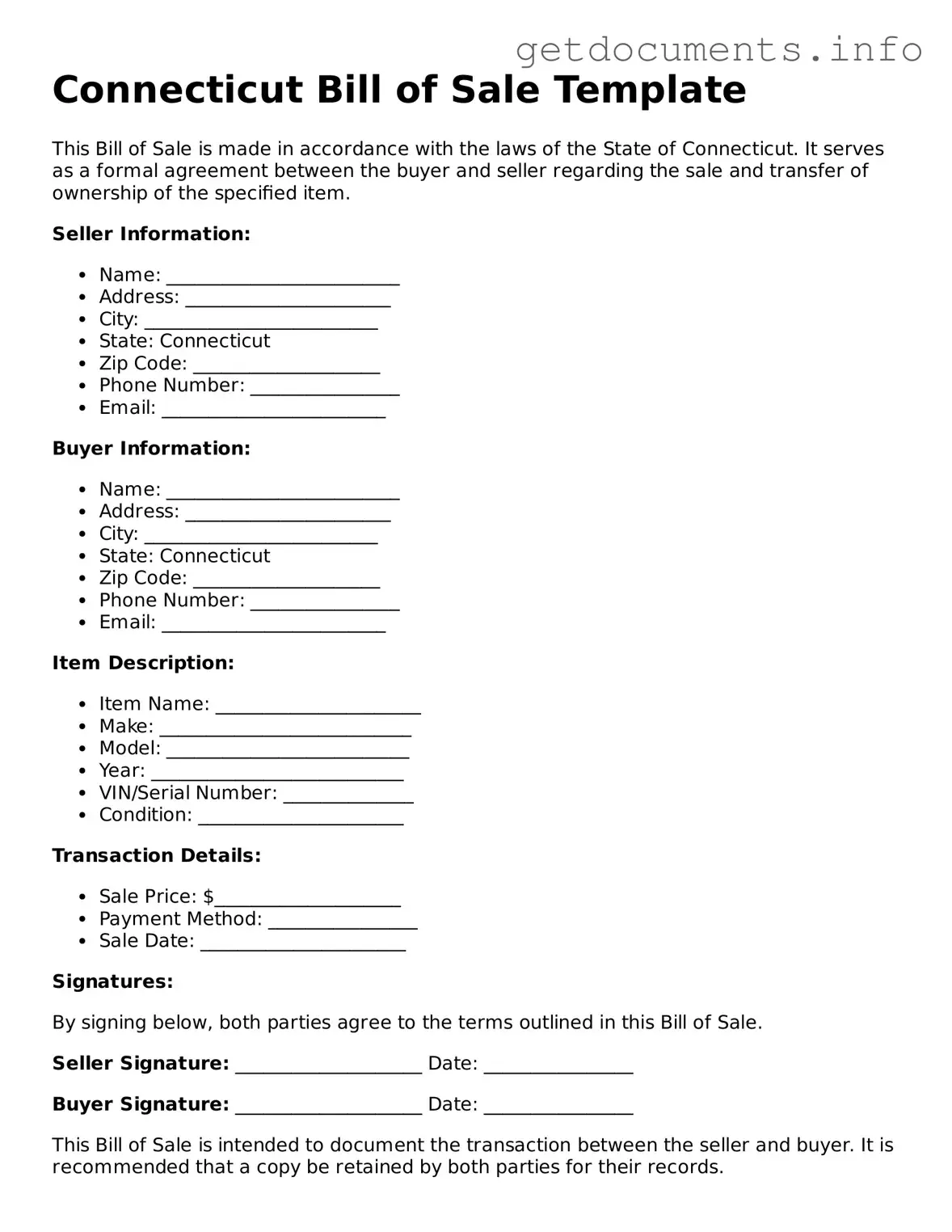Free Bill of Sale Template for Connecticut
A Connecticut Bill of Sale is a legal document that records the transfer of ownership of personal property from one party to another. This form serves as proof of the transaction and outlines essential details such as the item description, purchase price, and the names of both the buyer and seller. To ensure a smooth transfer, it’s important to fill out this form accurately; you can start by clicking the button below.
Access Bill of Sale Editor

Free Bill of Sale Template for Connecticut
Access Bill of Sale Editor
Got places to be? Complete the form fast
Fill out Bill of Sale online and avoid printing or scanning.
Access Bill of Sale Editor
or
⇩ PDF File
